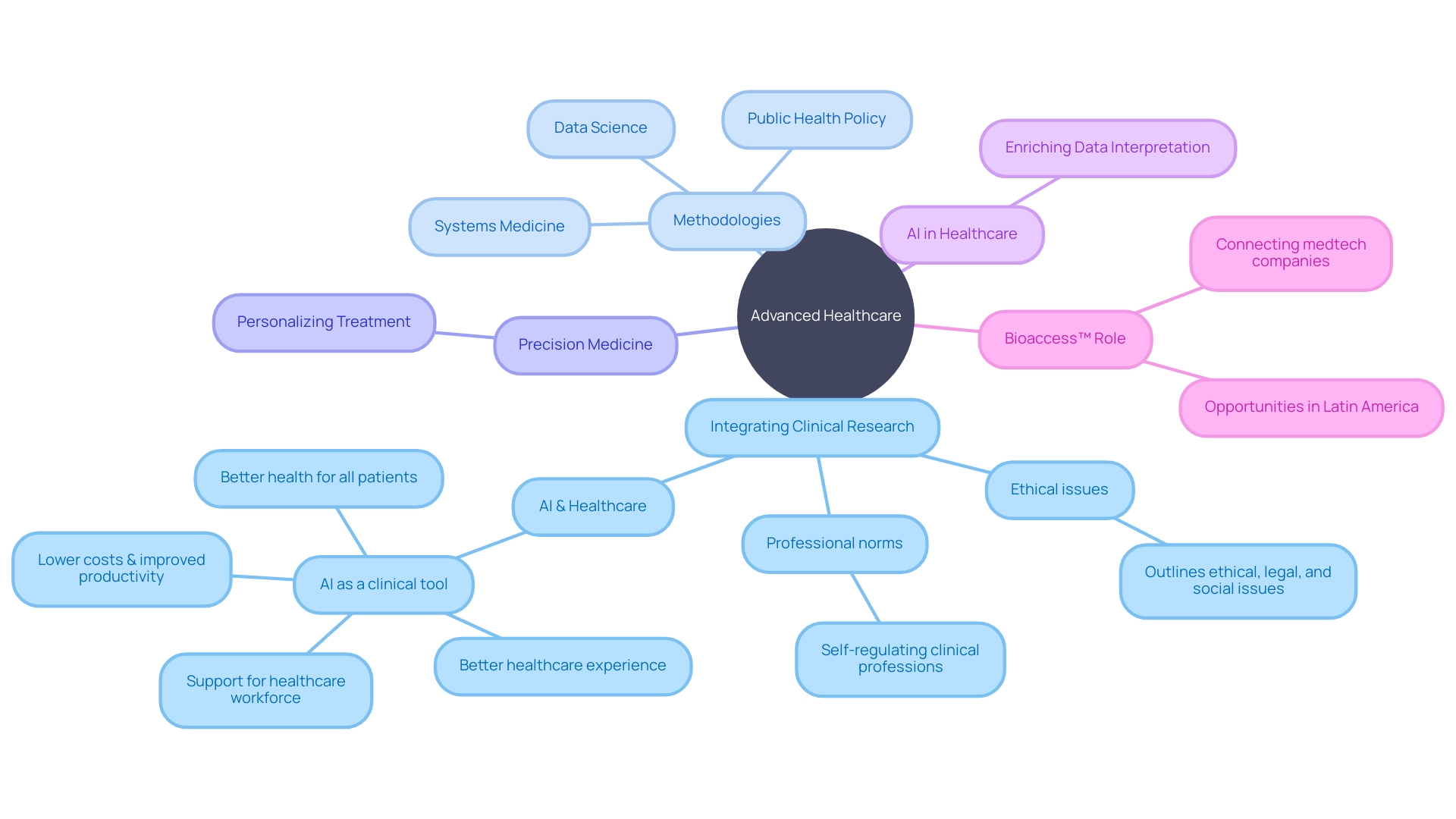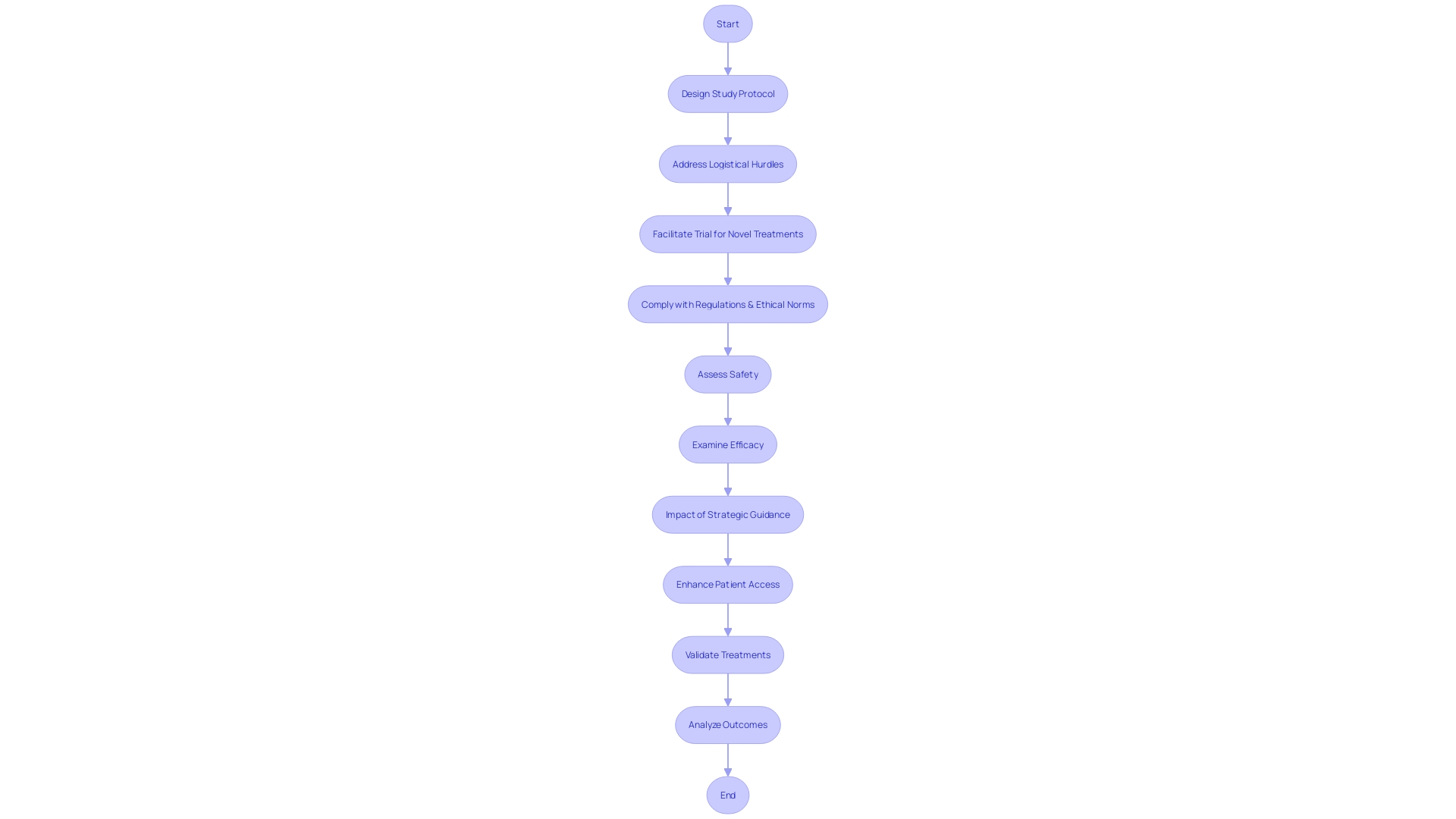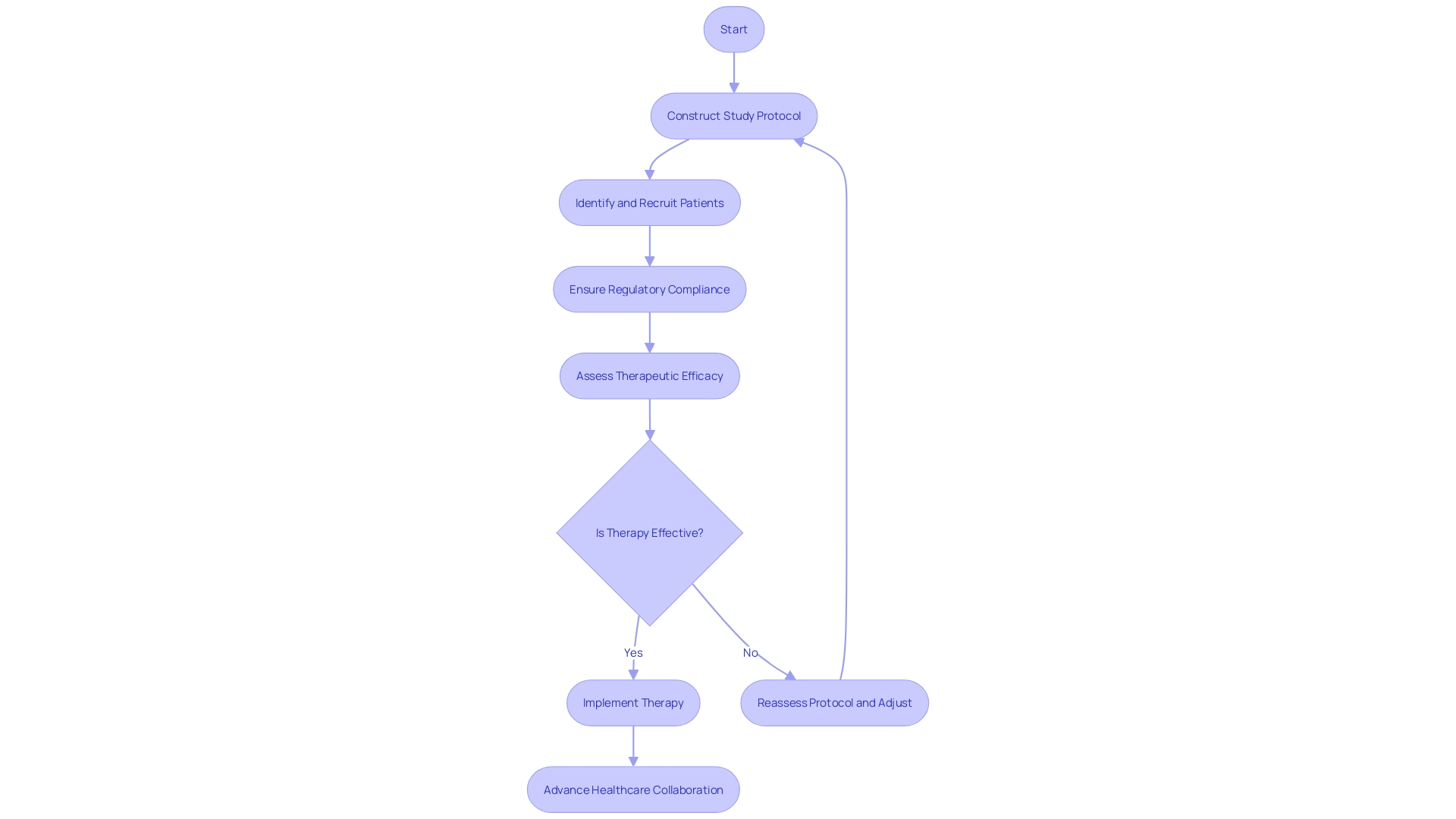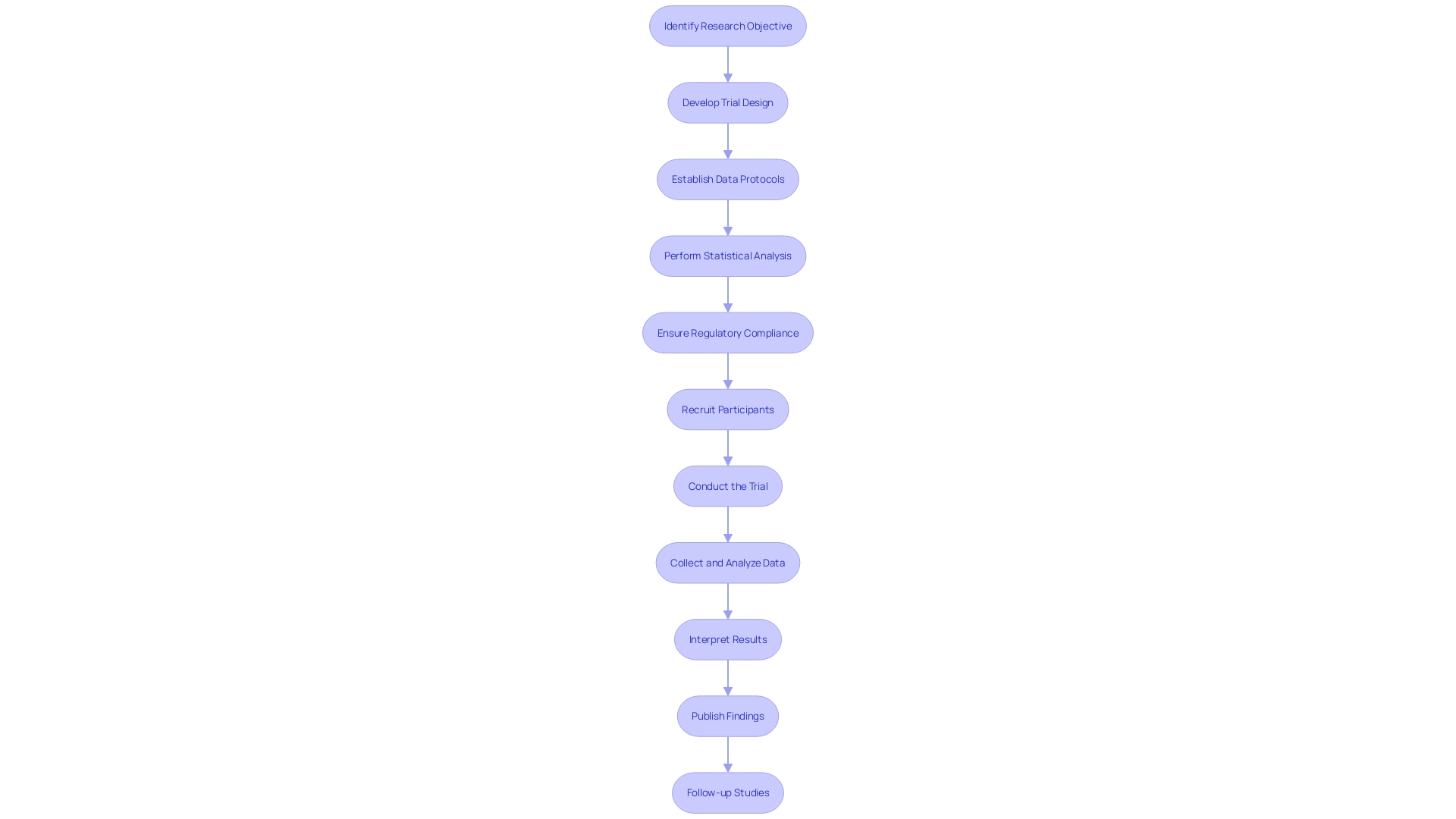Introduction
The Importance of Clinical Research in Advancing Medical Knowledge
Clinical research plays a vital role in advancing healthcare and improving patient outcomes. However, translating research findings from controlled trials to real-world clinical settings can be challenging.
As the medical community seeks better integration between research and practice, new strategies are emerging, including the incorporation of systems medicine, data science, and public health policy. This article explores the importance of clinical research in advancing medical knowledge, the role of clinical research consultants in facilitating clinical trials, successful collaborations between consultants and researchers, the benefits of partnering with clinical research consultants, and the challenges and opportunities in clinical research consulting. The aim is to provide accurate and detailed information to readers in a formal and professional manner.
The Importance of Clinical Research in Advancing Medical Knowledge
The synergy between clinical research and everyday medical practice is vital for advancing healthcare and patient outcomes. However, the translation of findings from the structured environment of randomized controlled trials (RCTs) to the complex real-world clinical setting is fraught with challenges. As the medical community presses for the better integration of research and practice, new strategies are emerging.
Interdisciplinary methodologies that incorporate systems medicine, data science, and public health policy are being recommended to bolster the effectiveness of clinical trials. Amid this landscape, precision medicine and AI offer promising avenues for personalizing treatment and enriching data interpretation. Fueling this advancement, Bioaccess™, a Clinical Research Organization (CRO) based in the U.S., plays a crucial role in expanding the reach of medical research by connecting medtech companies to the untapped opportunities in Latin America.
Recognizing the constraints, especially for startups with limited financial capabilities, Bioaccess™ provides a bridge enabling cost-efficient, fast, and high-quality clinical trials within the region. By leveraging local talent and resources for patient recruitment and data collection, Bioaccess™ facilitates a seamless research process for medical device startups. Acknowledged by important industry bodies, such as the U.S. Commercial Service and the American-Colombian Chamber of Commerce, Bioaccess™ not only champions economic advantages but also assures adherence to rigorous quality standards, supporting the aims of the 21st Century Cures Act to accelerate the arrival of innovative treatments while safeguarding patient safety and treatment efficacy.

The Role of Clinical Research Consultants in Facilitating Clinical Trials
Clinical research consultants harness their profound expertise in clinical trials to ensure the success of treatment developments, from the design phase through to ethical execution. Their involvement extends from orchestrating study protocols to addressing the multifaceted logistical hurdles faced by patients.
For instance, imagine a scenario where consultants facilitate trials for novel treatments, potentially lifesaving for a patient with a unique condition in Pennsylvania, ensuring that the trial, even if conducted in Turkey, complies with regulations and ethical norms. Furthermore, consultants support clinical trials through each pivotal phase, assessing safety with a limited group of volunteers in phase one and examining efficacy in phase two with patients.
An example of a successful integrated approach is CMIC Group from Japan, which, as a trailblazer in the Contract Research Organization industry, offers services that synergistically cover the entire pharmaceutical value chain. These insights reveal that 80% of pivotal trial decisions can be optimized with more diligent foresight, as stated by industry advisers. With the correct strategic guidance, consultants can substantially improve patient access, treatment validation, and outcomes.

Case Study: Successful Collaboration Between Consultants and Researchers
In a recent example highlighting the fusion of expertise that drives progress in medical treatments, a collaborative effort between a clinical research consultant and a team of researchers led to the successful evaluation of a novel therapy for a rare neurological disorder. This endeavor modeled a holistic approach advocated by Douglas Morrice and other scholars—the unification of varied specialties to tackle health issues more efficiently, a strategy shown to reduce hospital stays and enhance patient outcomes. The project adopted an interdisciplinary collaboration, bringing together the strengths of each participant to construct a robust study protocol, identify and recruit an appropriate patient population, and guarantee adherence to stringent regulatory standards.
This collective action, invoking the principles of partnered health research, where academic researchers engage with evidence users to increase research relevance and usability, resulted in the drug's endorsement for clinical application. It also echoed the essentiality of early and broad approaches in addressing the complexities of rare diseases, as detailed by experts who underscore the vast scale and acute necessity to learn across numerous conditions simultaneously. The positive outcome not only validated the therapeutic efficacy but also underscored the importance of integrated knowledge translation in achieving meaningful advances in healthcare.

Benefits of Partnering with Clinical Research Consultants
Clinical research consultants are a linchpin in the vast expanse of medical trials, providing a wealth of knowledge crucial to the high-stakes machinations of clinical studies. These experts are peerless in designing rigorous trials, enhancing data protocols, and their adept statistical analyses are at the core of successful outcomes.
Their command over regulatory landscapes is invaluable, guaranteeing that ethical protocols are upheld within the intricate framework of global trials. Leveraging their wealth of experience, these consultants boost clinical trial protocols, leading to refined patient recruitment and bolstered research integrity.
Consultants also demystify complex results, translating intricate data into comprehensible, actionable insights. They are particularly critical when addressing the logistical complexities inherent in international clinical studies.
This is vitally important when patients across the world, such as one from rural Pennsylvania enrolling in a trial in Turkey, need to overcome geographical and linguistic hurdles. Specialized Contract Research Organizations (CROs) like bioaccess™ distinctly illustrate the support needed for pharmaceutical companies to navigate new markets, particularly in Latin America. Since 2010, bioaccess™ has specialized in helping foreign medical device manufacturers establish and execute successful clinical trial strategies within Latin America. Their services provide an indispensable resource for innovation in a region ripe for rapid, cost-effective, and high-quality research, paired with a burgeoning market for medical technology commercialization. As partners such as greenlight guru and bioaccess™ lead the way with industry-specific solutions, they present medtech companies with the tools necessary to automatize quality, ensure regulatory compliance, accelerate product development, and unlock the untapped clinical research potential across Latin America, all while managing the challenges of limited financial resources typical in startup environments.

Challenges and Opportunities in Clinical Research Consulting
Advancements in medical knowledge are propelled forward through the meticulous work of clinical research consultants. However, the complexity of conducting clinical research calls for more than just expertise in the field.
A paramount challenge faced in this realm is fostering effective communication and collaboration among a diverse set of participants: consultants, researchers, sponsors, and other stakeholders. The essentiality of clear, transparent communication takes center stage when aligning expectations and overcoming potential hurdles that arise.
For consultants immersed in the dynamic world of clinical research, keeping abreast of the latest scientific breakthroughs and regulatory updates—such as those issued by the FDA—is critical. Engaging in a continuous learning process ensures that they can offer cogent, up-to-date guidance, which is paramount when addressing the safety, efficacy, and security of medical treatments.
It's equally crucial to consider the specialized needs of specific populations in drug development and to understand their unique questions and concerns. Consultants are often required to demonstrate adaptability, particularly when regulatory landscapes shift or when novel research findings emerge.
The narrative of a Pennsylvanian patient traveling to Turkey for a clinical trial underscores the intricacies of cross-border clinical research, spotlighting issues like visa procurement and language barriers. Such real-world examples illustrate the multifaceted nature of the consulting role, emphasizing the need to navigate logistical complexities thoughtfully. Furthermore, the structure and progression of clinical trials across the three main phases, which prioritize safety before moving onto efficacy and side effect comparison, necessitate a strategic mindset from consultants. Their adaptability is put to the test, ensuring not just compliance but also the forward motion of research that could essentialize new treatments and interventions for patient use. A keen understanding of these facets of the job can significantly contribute to the successful execution of clinical trials and the acceleration of medical innovations.
Conclusion
In conclusion, clinical research is essential for advancing medical knowledge and improving patient outcomes. Integration of systems medicine, data science, and public health policy enhances the effectiveness of clinical trials. Clinical research consultants play a crucial role in facilitating successful treatment developments by addressing logistical hurdles and ensuring compliance with regulations.
Collaborations between consultants and researchers demonstrate the power of interdisciplinary approaches in advancing healthcare. Partnering with clinical research consultants brings benefits such as rigorous trial design, enhanced data protocols, and simplified interpretation of results. Specialized Contract Research Organizations (CROs) provide invaluable resources for navigating new markets and driving innovation.
However, challenges include effective communication and collaboration among stakeholders, adapting to evolving scientific and regulatory landscapes, and navigating logistical complexities. Strategic planning is crucial for successful trial execution. By overcoming these challenges and capitalizing on opportunities, we can drive medical innovations and improve patient care globally.




